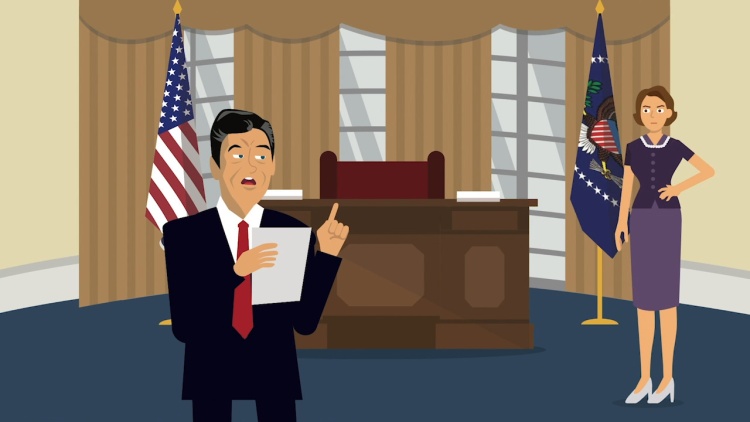Lewis v. Superior Court
California Court of Appeal
217 Cal. App. 3d 379 (1990)
- Written by Samantha Arena, JD
Facts
John Lewis (defendant), a Republican California politician, instructed his staff members to draft letters in support of other Republican candidates running for legislative office, to be mailed to registered voters in identified districts. The letters were printed on stationery bearing a White House letterhead and were apparently signed by former president Ronald Reagan. The signatures affixed to the letters, however, did not actually belong to President Reagan and were not authorized by the White House. The letters bearing the false signatures were mailed to voters despite Lewis’s knowledge that permission to use President Reagan’s signature had been explicitly denied. The State of California (plaintiff) charged Lewis with one count of forgery in violation of California Penal Code § 470, which provides that any person who counterfeits or forges the handwriting of another, or passes or attempts to pass as true and genuine any false or forged document or instrument, knowing it to be false, with the intent to defraud any person, is guilty of forgery. Lewis was indicted and petitioned the court for a writ of prohibition on the indictment, contending that the penal code did not encompass falsification of a signature on a political-endorsement letter. The superior court denied the motion. Lewis appealed.
Rule of Law
Issue
Holding and Reasoning (Blease, J.)
What to do next…
Here's why 908,000 law students have relied on our case briefs:
- Written by law professors and practitioners, not other law students. 47,100 briefs, keyed to 996 casebooks. Top-notch customer support.
- The right amount of information, includes the facts, issues, rule of law, holding and reasoning, and any concurrences and dissents.
- Access in your classes, works on your mobile and tablet. Massive library of related video lessons and high quality multiple-choice questions.
- Easy to use, uniform format for every case brief. Written in plain English, not in legalese. Our briefs summarize and simplify; they don’t just repeat the court’s language.





